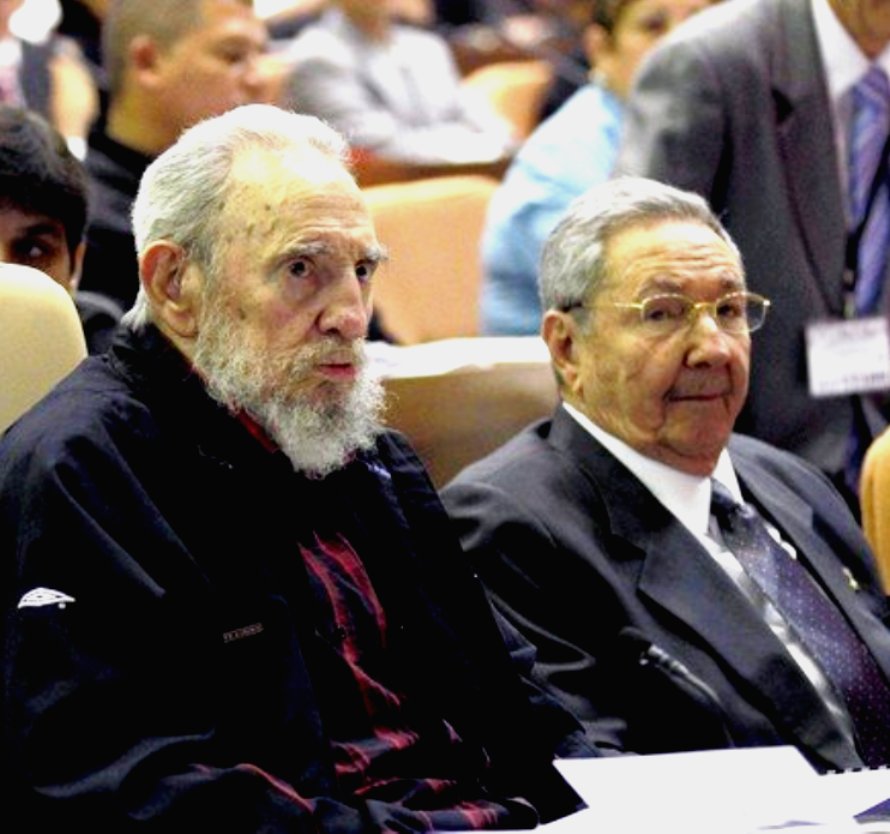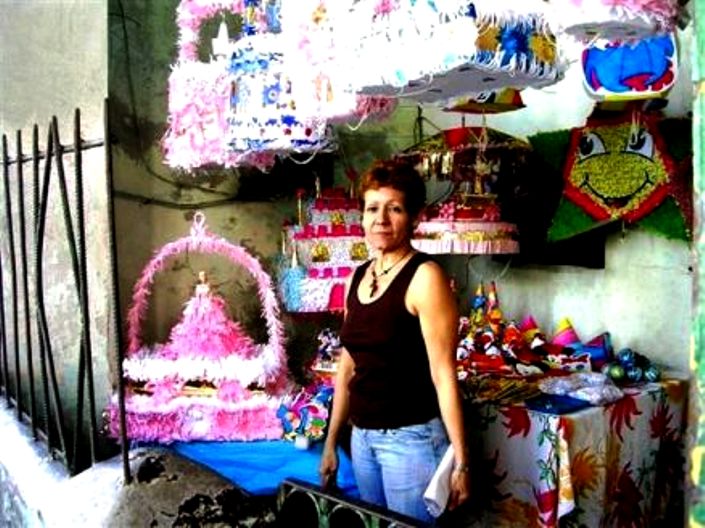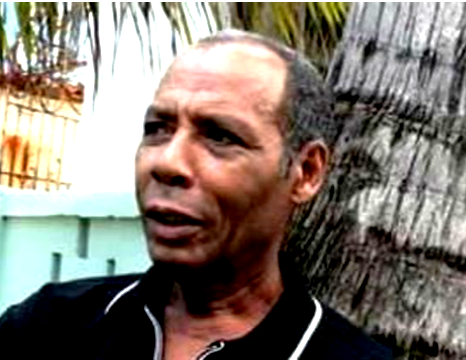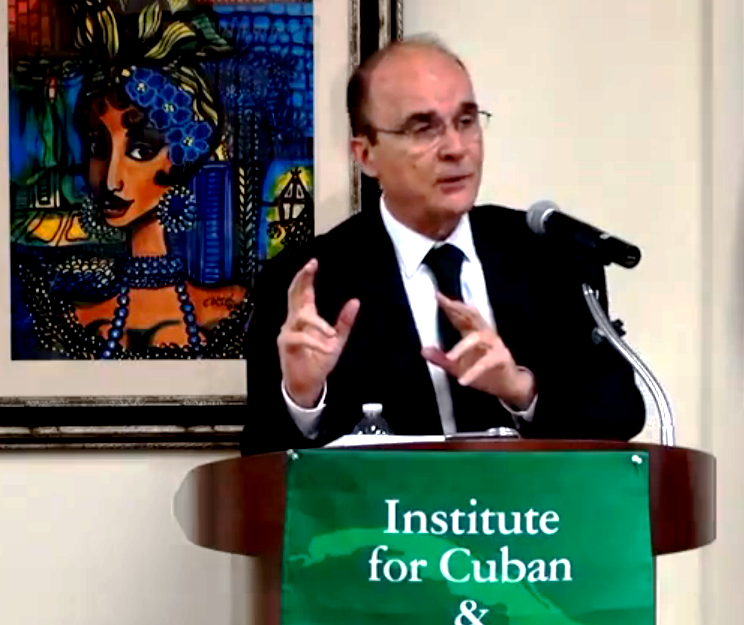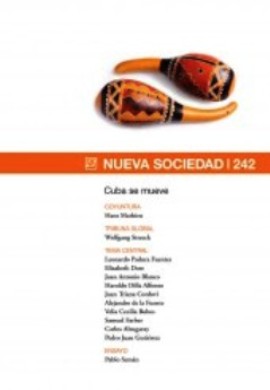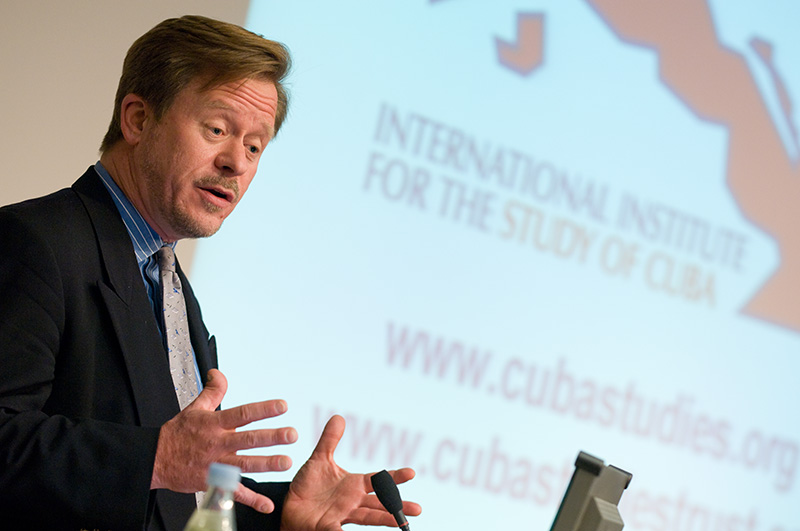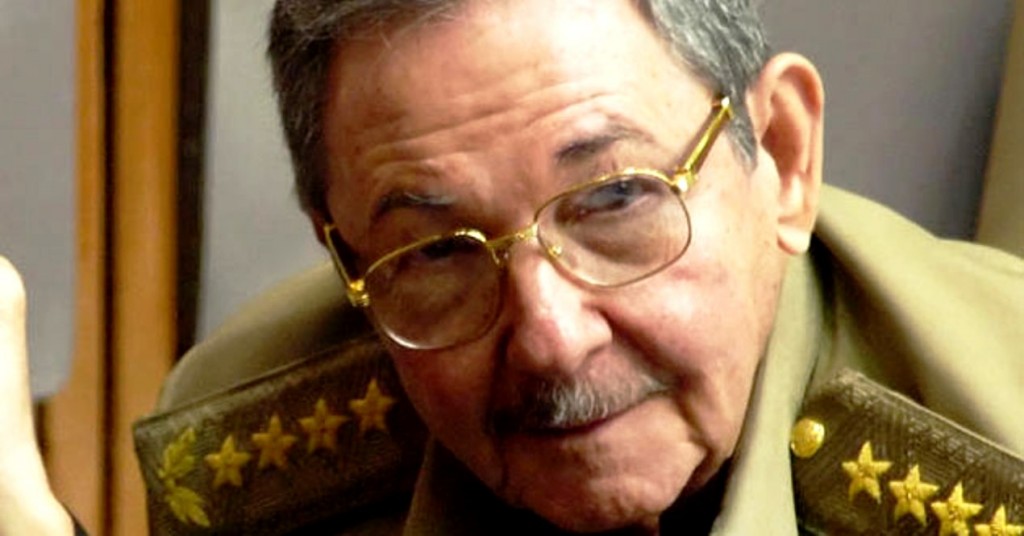By Juan O. Tamayo
Original Here: Miami Herald, February 24, 2013 Cuba under Raúl
As Cuban ruler Raúl Castro marks his fifth official year in power on Sunday, some Cubans might well be asking, like the U.S. advertising campaign, “Got Milk?”
In his first major speech after succeeding ailing brother Fidel, Castro declared that the government’s highly centralized and inept system for collecting and distributing milk was “absurd” and vowed to fix it.
Today, some towns are indeed getting not just more milk but also butter and cheese, yet others are no better off — mirroring the sharply contrasting assessments of the economic reforms Castro launched to dig the island out of its communism-induced quagmire.
Some Cubans say the newly allowed private economic activity already has made daily life a bit easier for most of the island’s 11.2 million people, with more sellers offering more goods and more buyers finding more of the goods they seek.
“Look, I see a lot of people smiling because there are more ways to make a living and I have more pork to sell,” said Mori, the nickname of a salesman in a Havana butchers’ kiosk. “And people are buying, even though the prices are high.”
“You can’t say that Raúl’s Cuba is the same as Fidel’s Cuba. You just have to go on the streets to see that,” said dissident Havana economist Oscar Espinosa Chepe.
“I am surprised at how fast Raúl has moved, in the context of the previous half-century” added Archibald Ritter, an economist at Carleton University in Ottawa who runs the blog The Cuban Economy.
But Espinosa Chepe, Ritter and other knowledgeable Cuba-watchers say the reforms have been far too slow and too meek to reverse nearly half a century of brutally incompetent central government and its controls, Soviet Union-style, over virtually the entire economy.
Castro’s main reforms are “positive and well-oriented” and have accelerated in the past six months but remain “insufficient to solve the socio-economic problems accumulated in 50 years of centralized socialism … due to obstacles and disincentives,” said Carmelo Mesa-Lago, the dean of Cuba economists and author of the Spanish-language book Cuba en la Era de Raúl Castro.
Just updates
The list of reform initiatives launched since Castro officially succeeded Fidel on Feb. 24, 2008, is long and impressive and points to a strategy of allowing more capitalism but not democracy that looks like the China model —- though Havana insists it’s on its own path.
He has legalized non-agricultural cooperatives, allowed more private businesses and farming, offered them loans and permitted them to hire non-family employees. He has cut the bloated state payrolls, legalized the sale of homes and cars and allowed Cubans to stay in previously tourist-only hotels.
Most importantly, Cubans say, the removal of the much-hated “exit permit” last month for those who want to travel abroad has eased the sense of isolation and entrenchment that prevailed during Fidel Castro’s hardliner search for a socialist utopia.
But Raúl Castro has repeatedly said he’s proceeding apace to “update” the economy — never “reform” it — and his No. 2, José Ramón Machado Ventura, has dismissed those “who demand faster advances, naively thinking they will lead to capitalism.”
As a result, Cuba today teeters somewhere between the promise and realities of the reforms, between his on-the-mark diagnoses of what ails the country and a shortage of the appropriately strong medicine.
Licenses, taxes
Castro has thrown the doors open to more private enterprise but still limits licenses to 181 strictly defined jobs — among them, party clown — slapped steep taxes on them and vowed that central planning will remain the guiding force of the economy.
The decree allowing non-agricultural cooperatives — state-owned restaurants can become employee coops, for instance — is positive, said Ritter. But it requires the coops to accept as full members all employees of more than 90 days, such as a receptionist.
In one of the most critical reforms, Castro decreed in 2008 that nearly five million acres of idle state farmlands would be leased to private farmers to increase agricultural production and cut a food import bill estimated at $1.5 billion a year.
But only 3.7 million acres had been handed out at the end of 2012 and the government retained Acopio, the notoriously bumbling state system for gathering and distributing farm products. That’s what Castro attacked in that first major speech, in 2007, when he detailed the incompetent system for producing, processing and distributing milk.
It also took the government four years to reverse a section in the decree that banned the new farmers from building homes on the land — in effect forcing them to commute and leave their farm animals and machinery exposed to thieves every night.
Perhaps that’s why domestic food production dropped in 2011 to pre-2007 levels, and dropped again in 2012, with pork, a staple of the Cuban diet, down by 18.3 percent. Agricultural food prices spiked by about 20 percent while salaries barely ticked up, and food imports remained stable.
Cuban officials also announced 500,000 state employees would be dismissed by April 2011, and 800,000 more would follow by the end of that year in order to slash government spending. Yet by the end of 2012 the total layoffs reportedly stood at only 365,000.
Castro ordered an all-out attack on corruption, and put his son, Alejandro, in charge of the campaign. Yet bribery appears to be booming in the dark spaces between socialist and capitalist economic activities, and reports of fresh scandals filter out almost every week.
He has repeatedly called for a younger leadership and promoted Foreign Minister Bruno Rodriguez, 54, to the Politburo of the Communist Party and Higher Education Minister Miguel Diaz-Canel, about 52, to vice president of the Council of Ministers.
But Cuba’s leadership remains ancient. Castro is 81, Machado Ventura is 82 and Ramiro Valdes, another vice president of the Council of Ministers and sometimes considered No. 3, is 80. Overall, 10 of the 15 politburo members are in their 70s and 80s.
He has demanded that all state-owned enterprises improve their management and threatened to shutter those that do not turn a profit. Yet the General Comptroller’s report for 2012 said 34 percent of the 234 estate entities audited fell short of their goals.
Ritter noted that industrial output in 2011 stood at a shocking 47 percent of the levels in 1989, when post-communist Moscow halted its subsidies to Havana and the island plunged into economic ruin. The purchasing power of salaries in 2010 was 30 percent lower than in 1989, according to Espinosa Chepe.
Castro’s reforms “are useful and positive and I would applaud them, but in terms of reversing the situation in industry they are not going to go too far,” said Ritter. “The industrial sector is a disaster. Cuba is de-industrializing.”
Plans, illusions
Castro also improved daily life by halting the massive political marches and rallies that brother Fidel so loved, Espinosa Chepe added, and diversifying the programs on the state television monopoly — “though they remain boring and with a heavy political bias.”
But virtually every young Cuban still has “a plan or an illusion” to escape the island, said Michel Matos, executive director of the Rotilla Festival, a privately organized music fest held annually from 1998 until the government banned it in 2011.
Some Cubans paint a dark picture of their future, with more poverty, especially among retirees whose benefits seldom rise above $15 a month. The gap between haves and have-nots has risen as the government has cut back spending on public health and education. Crime and prices continue to rise.
A woman who visits Havana often said a well-off and pro-Castro friend there recently told her that “there is a tension you feel all the time, like it’s going to explode. We don’t know where we’re going.” The woman asked for anonymity to speak frankly.
The specter of Fidel
Castro’s half-measures and stop-and-go reforms have sparked speculation on exactly who or what is standing in his way. The “who” is presumed to be the 86-year-old Fidel, always a sworn enemy of capitalism.
“In general I believe that we have a duty to update and improve it [Cuba’s Soviet-style economic model], but this is a stage where it is essential that we march very carefully. We should not make mistakes,” Fidel said earlier this month when asked about the reforms.
Arturo Lopez-Levy, a former government analyst on intelligence issues and Cuba-U.S. relations now at the University of Denver, said Raúl Castro is “losing time” with the slow pace of reforms “not because of indolence but because there is no agreed-upon vision of the system toward which Cuba is moving.”
The “what” is widely believed to be an entrenched bureaucracy that fears the reforms will take away its benefits and perquisites. Jorge Dominguez, a Harvard University expert on Cuba, has described what Castro now faces as a tough “bureaucratic insurgency.”
Impediment to talks
As for U.S. relations, Castro has repeatedly offered talks with the Obama administration, yet held on to the one clear impediment to improved relations: U.S. government subcontractor Alan Gross, serving a 15-year sentence in Havana for giving sophisticated communications equipment to Cuban Jews in violation of Cuban laws.
“The government needs a less confrontational scenario in bilateral relations, but its survival is not dependent on a deal with the U.S.,” said Lopez-Levy. “The optimum scenario for [Castro] is not a sudden lifting of the embargo but a piecemeal dismantling.”
And on the human rights front, Castro freed 52 political prisoners jailed since a 2003 crackdown on dissent but at the same time stepped up repression, with a record 6,200 short-term detentions for political motives reported last year alone.
One bit of certainty
Castro is certain to be elected to a second five-year term as president of the Councils of Ministers and State when the parliamentary National Assembly of People’s Power opens its new session on Sunday. But the country’s future is less certain.
Lopez-Levy said he believes that during his first five years in power Castro carefully laid the institutional foundation for a more mixed state-private economy and a state withdrawal from daily life.
But Venezuelan President Hugo Chávez, whose subsidies to Cuba are pegged at more than $6 billion a year — higher than the aid that Moscow once provided — has cancer and it’s not clear whether a successor would keep the same level of aid.
Havana blogger Yoani Sánchez wrote last month that given Cuba’s myriad and profound problems, it’s difficult for her to believe that the system can “survive the new year, never mind guarantee its long-term viability.”
“But it merits mentioning that the Havana regime has been showing its ability to overcome, including even the most unfavorable predictions, for a long time,” she added. “After all, the Cuban economy has been in a permanent state of crisis for 20 years.”
“It will be much more likely to see our frustrations in the lines outside embassies [in Havana] waiting for a visa,” Sánchez noted, “than in any mass protests.”
